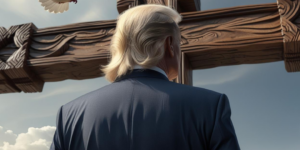Defending Prop 8
Supporters of California‘s Proposition 8 are gearing up for a long legal battle over marriage after a federal judge struck down the voter-approved gay marriage ban in August.
A hearing before the 9th Circuit Court of Appeals is scheduled for December, with briefs beginning this month. But both opponents and defenders of Proposition 8 expect the case to end up at the Supreme Court in a process that could take up to three years.
Proposition 8’s defenders are confident the high court will uphold traditional marriage. They say U.S. District Chief Judge Vaughn Walker’s decision was unprecedented. Not only did he declare gay marriage a constitutional right, Walker also classified sexual orientation as a protected class under the Constitution. “That is what gives us confidence that it will be reversed on appeal,” says attorney Jim Campbell, staff counsel for the Alliance Defense Fund, which was part of the legal team defending Proposition 8.
Proposition 8 passed in November 2008, just months after the state Supreme Court had legalized gay marriage in May. In his decision, Walker ruled that Proposition 8 “both unconstitutionally burdens the exercise of the fundamental right to marry and creates an irrational classification on the basis of sexual orientation.†He said the fact that 52 percent of California voters passed Proposition 8 was “irrelevant, as ‘fundamental rights may not be submitted to [a] vote; they depend on the outcome of no elections.'”
Traditional marriage advocates have been watching the Proposition 8 case closely, concerned that a ruling in favor of gay marriage could impact marriage amendments passed in 31 states and challenge the Defense of Marriage Act, which defines marriage as the union of one man and one woman. “We have no intention of backing up on this issue because far too much is at stake,” says California pastor Jim Garlow, who lobbied for the ProtectMarriage.com Yes on 8 campaign.
Whatever happens in court, Garlow believes the decision could impact the midterm elections next month. He says morally conservative voters “are going to rise up and say enough is enough.”



























































